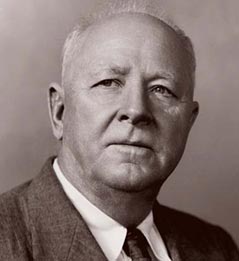A Quote by Wes Jackson
When people, land, and community are as one, all three members prosper; when they relate not as members but as competing interests, all three are exploited. By consulting Nature as the source and measure of that membership, The Land Institute seeks to develop an agriculture that will save soil from being lost or poisoned while promoting a community life at once prosperous and enduring.
Related Quotes
My favorite quote: The land ethic simply enlarges the boundaries of the community to include soils, waters, plants, and animals, or collectively: the land. In short, a land ethic changes the role of Homo sapiens from conqueror of the land-community to plain member and citizen of it. It implies respect for his fellow-members, and also respect for the community as such.
This is community land that belongs to particular clans, and therefore, it must go back and its administration and the determination as to what to do, must rest in the hand of the communities. That is why you have these committees, among whose members, of course, they will be traditional leaders. You will have these collectives, which must then deal with the land, the issue of communal rights.
I think we can topple the patriarchy by using our voices to speak out against things that aren't right and that we don't agree with. I think for people who are not people of color or members of the LGBT community, it is being an ally and being an advocate in spaces that people of color or members of the LGBT community can't really get into.
Some communities will be abandoned, others will struggle along, others will split, others will flourish, gain members, and be duplicated elsewhere. Each community must win and hold the voluntary adherence of its members. No pattern is imposed on everyone, and the result will be one pattern if and only if everyone voluntarily chooses to live in accordance with that pattern of community.
Here, in the Land of Israel, we returned and built a nation. Here, in the Land of Israel, we established a State. The Land of the prophets, which bequeathed to the world the values of morality, law and justice, was after two thousand years, restored to its lawful owner - the members of the Jewish People, On its Land, we have built an exceptional national Home and State.
To husband is to use with care, to keep, to save, to make last, to conserve. Old usage tells us that there is a husbandry also of the land, of the soil, of the domestic plants and animals. And so it appears that most and perhaps all of industrial agriculture's manifest failures are the result of an attempt to make the land produce without husbandry.
The tax upon land values is the most just and equal of all taxes. It falls only upon those who receive from society a peculiar and valuable benefit, and upon them in proportion to the benefit they receive.It is the taking by the community for the use of the community of that value which is the creation of the community. It is the application of the common property to common uses. When all rent is taken by taxation for the needs of the community, then will the equality ordained by nature be attained.
History is largely a record of human struggle to wrest the land from nature, because man relies for sustenance on the products of the soil. So direct, is the relationship between soil erosion, the productivity of the land, and the prosperity of people, that the history of mankind, to a considerable degree at least, may be interpreted in terms of the soil and what has happened to it as the result of human use.
In New Zealand, sex workers are regarded as workers, as people who are members of the community, people who have a stake in the community - not just in the workplace, but in the broader community. They aren't objects to be controlled and regulated. They are not collateral evidence of a crime. They are human beings.
Unlike the issue of messiahhood, which arose when Jews and Christians were members of the same religio-political community and spoke the same conceptual language, the issues of the incarnation and the Trinity divide people who are no longer members of the same community and who no longer speak the same language.






























